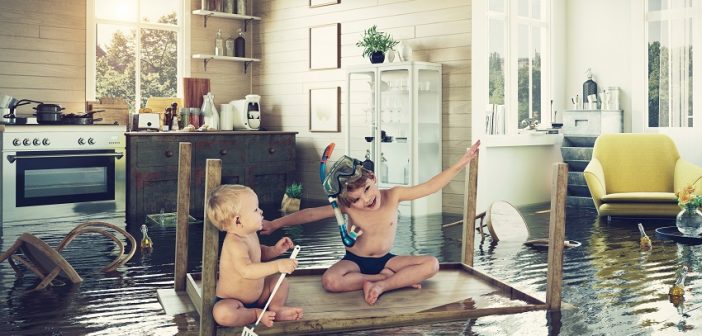Your dishware is cloudy, even after you’ve put it through two separate cycles in the dishwasher. The washing machine keeps breaking down from mineral deposits getting stuck in the gears. Your skin and hair are dry, your scalp flaky. It’s almost impossible to work up a good lather with the soap. Say the experts, these are all “classic signs” that your water is hard.
You’re not alone. According to the USGS (United States Geological Survey), many Americans live in areas where hard water is commonplace, especially if your supply comes from a well. What exactly is hard water? Water that contains too much calcium, magnesium, iron and, on occasion, other toxic chemicals like chlorine. It tends to be most present in places where large quantities of gypsum and limestone can be found in the ground. If sulfur is also in the ground, your hard water can smell like rotten eggs.
While hard water is technically not considered a health hazard per se, it can be a real problem for your home and your bank account. Hard water can damage appliances that require water to function, it can block pipes, leave mineral deposits on cups and drinking glasses, and it can even permanently stain toilets.
So then, what can you do to alleviate the hard water issue in your home? Depending upon the severity of your problem, here are a few suggestions.
Pay Attention to Water Pressure
A mild case of hard water may simply require you to clean, by hand, both built-up residue and stains. But Chuck Khiel, vice president of Fred Home Improvement warns, too much limescale buildup can effect water pressure and clog pipes. He states that it’s important for you to pay attention to your shower water pressure, since that’s where people seem to initially notice the negative changes.
You can purchase a pressure gauge which can be attached to a spigot. This enables you to compare the readings to the city readings which are regularly posted on your city or town’s website. If necessary, call in a certified plumber to help. A plumber can attempt to remove the buildup occurring in the pipes. But that does not eliminate the root cause of the problem, which is the hard water itself.
Water Filter Systems
Fortunately, engineering has caught on to the many problems hard water poses for your home, and today, there are quite a few mechanical options for treating it. If you wish to eliminate the hard water problem for good, you can purchase a whole-house softening system that can be installed by a certified plumber. Generally speaking, whole-house units are sodium ion-exchange systems that use sodium to push out magnesium and calcium from the hard water.
But if you don’t need a whole-house system, you can buy smaller systems that can be attached directly to faucets, or under the sink like a Brita under sink water filter. If you’re somewhat handy around the house, you can usually install these simpler systems by yourself.
Keep in mind that the filtration systems you install in certain areas of your home (usually where water is used for cooking, cleaning, and drinking), while effectively filtering contaminants, they will not solve the overall problem of hard water. Only a whole-house water softening system can achieve that. Again, it all depends on the severity of the hard water and what amount of mineral contamination you can comfortably live with.
Cleaning and Maintenance
Make no mistake about it. Over time, hard water will cause pipes to clog and appliances to fail. It also will stain your clothes and cause a greasy film to coat your drinking glasses and dinner plates. A new report from The Washington Post states hard water will cause limescale and sediments to buildup in water heaters causing them to work harder than normal. This will increase your energy bills costing you precious cash over the long and short term.
One solution is to drain your water heater at least once annually and hire a plumber to maintain it so that it continues to run smoothly and efficiently. Along the same lines, while cloudy drinking glasses and stained plates are a nuisance, the limescale that eventually builds up in your dishwasher due to hard water will cause it to fail.
You can either purchase expensive dishwashing liquid that helps eliminate the affects of hard water on your appliances, or you can install a whole-house water softener which, although expensive in the short run, will save you a lot of money and headaches in the long run.





Hi, thanks for these tips! I think it’s very important to take care of the water in your home. It is best to conduct a water quality analysis to understand which filtration system you need. I did this, and after that I found a suitable home water filtration, which improved the water quality several times.